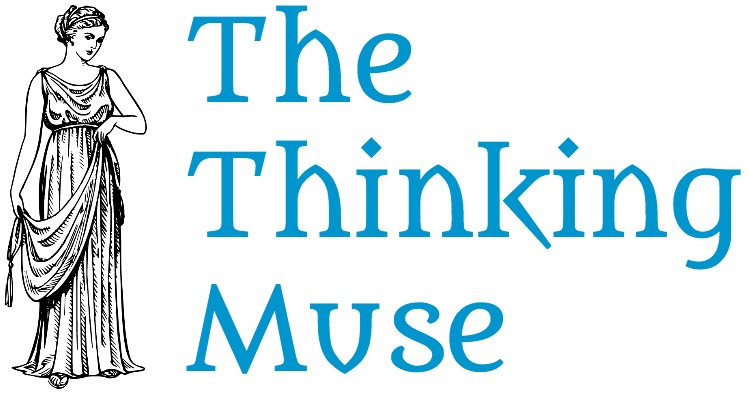Stewardship is all around you, just take a look and then take action

I hate to admit it, but sometimes I feel like I am getting old. I like to tell myself otherwise, but somehow middle age has started to sneak up on me out of nowhere. Funny, you just don’t think it will happen to you, but it does. But thank goodness for that because think of the alternative.
Unfortunately, our society tends to focus on the negative aspects of getting old. But, there are positive aspects too, I promise. I believe the key to getting old successfully is to focus on the positive aspects.
The afternoon of life is just as full of meaning as the morning; only, its meaning and purpose are different.
-Carl Jung
Recent studies have shown that happiness increases as you age. That’s great for those of us on the not-quite-young spectrum. Those studies speak to how stressful life can be. I imagine that part of that increase in happiness is that you focus less on yourself as you age. What a relief.
(See Related: How to be more happy with life using flow)
You can drive yourself crazy overthinking every last detail about yourself. What you look like. What others think of you. That gray hair you found. How boring! and how insignificant.
(See Related: The simple pleasures and benefits of being in nature)
As we age, we tend to pull back mentally to a more wholistic perspective. Considering the world and all of the life filling it. This is when we realize that we have the capacity, capability, and even responsibility to contribute.
That is the theme of the month and the topic of this article, stewardship.
What is stewardship?
The origins of the word stewardship trace back to the words for guard of the house or housekeeper. Not the owner as in the person who has possession or propriety rights. Not the resident who merely occupies the space. But the guard and keeper, the one who watches over, maintains, and protects.
The concept of stewardship can apply to many universal areas. Cultures, environments, religion, and even business practices.
In many of these spheres, there is no single owner. So whoever maintains and protects them has the power to help shape and define what is of value and what deserves protection.
Worldwide organizations, government agencies, or even local agencies tend to lead stewardship efforts. Examples might be churches, the environmental protection agency, or museums.
Cultural awareness, environmental responsibility, and other worldly issues shape our knowledge and help drive new values. Values of our individual or shared heritage and our environment. All things of value not merely in an economic sense, but in aesthetic, educational, scholarly, and culturally.
Whoever assigns the value drives the direction of efforts and therefore has a lot of power.
Museums act as stewards for the public by curating its collections to subscribe to the values and ethics they believe important to their community. So how does stewardship translate in the other spheres of our world? Let’s take a look.
Stewardship in philosophy
Philosophers have ascribed stewardship as a characteristic associated with a certain stage of life.
Carl Jung, the founder of analytical psychology, described four archetypes or phases of life. They are the athlete, the warrior, the statesperson, and the spirit. Stewardship is an enormous part of the statesperson phase.
This state is defined by focusing on making a difference in the world and in the lives of others. One focuses on the greater good in a role of servitude.
This closely resembles Erikson’s state 7 or “middle adulthood”. This state is quite nurturing by giving attention to helping younger generations. If one feels that they haven’t accomplished anything in that regard they are stagnate.
This is all rather interesting to me. Since stewardship emerges during a specific stage of life that implies that if one doesn’t reach that stage of life they won’t acquire it. Hmmm, that kind of makes sense.
We all know people who are, for one reason or another, stuck in a certain stage of life. Of course, these stages are not concrete, one-way rites of passage. We can circle around and repeat phases and jump ahead depending on the scenario.
Regardless of how, when, or where we reach this stage, we can make a difference in the world. Aside from being relieved of thoughts of your own shortcomings or suffering, you can concern yourself with giving. Declutter your brain of what isn’t important and contemplate the meaning of life and how you can improve that life for others and future generations.
Stewardship in business
The concept of stewardship has also been applied to theory of business practices.
The stewardship theory is often discussed in contrast to agency theory. Agency theory is based on parties acting solely in their best interest which causes a lot of time and money to be spent on contracts, reviews, and incentives to ensure best results. Stewardship theory is based on a more collaborative effort where all parties share a common goal.
Just as the world is not black or white, business practices are often optimal when a medley of practices are used. It all depends on the lifecycle and situation of the business.
Stewardship practices are many times seen in family businesses. You can imagine how this would work well with the trust inherent in family interactions and a shared common vision. However, you may have problems when your unemployed cousin Vinny isn’t truly qualified for the job he’s just been given by your grandma.
That is just one example of what can happen when the person in power gets to decide on what values to preserve.
Stewardship in religion
 You are probably most familiar with the term stewardship in relation to religion.
You are probably most familiar with the term stewardship in relation to religion.
Many of you have probably heard about the head of a church preach on being good stewards. This can mean many things.
Of course the obvious one is generosity with money or tithe to the church. This is just part of the belief. One is often expected to give generously with time and talents as well.
Really, it all boils down to the belief that we, as humans, don’t own anything. EVERYTHING belongs to God and all of our resources should be used in his name and the common good. In turn for your stewardship of these resources, you gain solidarity.
Stewardship in culture
Just as philosophers defined aspects that come to the forefront during different stages of life so have ancient cultures. Ancient Indian texts and Ancient Greek knowledge also address stages of life. This is a common theme across humanity.
Regarding culture, museums act as stewards through careful curation of their collections. These collections are held in trust for the public, present and future. Museums preserve, interpret, promote, and educate. They are a resource for our communal heritage.
However, what about cultures that have limited or no access to the world that you know?
(See Related: Curious about uncontacted tribes? What you should know)
These people have no desire to be in contact with the world outside of their own. However, their land and livelihood is being taken from them. That is where organizations such as Survival International and Cultural Survival come in.
These organizations are trying to act on behalf of these tribes while not interacting with them. A challenging task indeed. However, these organizations feel that these cultures deserve their inherent human rights to determine their own futures.
These organizations are acting as stewards of these cultures who can not speak for themselves. Imagine the languages, spiritual traditions, artistic expression, and practices that they are protecting. Keeping these cultural traditions alive. What a difficult task, but amazing and very honorable.
(See Related: How to read Egyptian hieroglyphs: 10 tips for the beginner)
Stewardship in environment
 Last, but not least, the environment. This area has grabbed the most headlines in the past few years. Stewardship of our wonderful and fragile ecosystem and environment.
Last, but not least, the environment. This area has grabbed the most headlines in the past few years. Stewardship of our wonderful and fragile ecosystem and environment.
Who is ultimately responsible for our world? You and me. How do we tackle large issues like climate change, air quality, toxic and chemical safety, and clean water?
Luckily, governments and organizations such as the EPA and UNESCO are making efforts in the name of stewardship for our environment. We can provide our resources to these efforts. It is going to take everyone to make changes happen.
Actions are being taken through regulation and programming. They concern the topics of recycling, conservation, regeneration, and restoration. Results can be seen in green spaces, pollutions prevention, energy efficiency and conservation, waste minimization and management.
(See Related: A save the sky guide: What is light pollution and what you can do about it)
Essentially, we want to be as smart, efficient, and effective as possible with our use of all resources. This is easier said than done when we don’t fully understand the repercussions of our actions, but we are learning.
As stewards of our environment, we can ensure a safe place for future generations to live.
Your life
After reading about the various spheres of stewardship, I bet you now realize that you are acting as a steward. I bet you also didn’t realize the power you held in that act. Life is all about the lessons we learn along the way.
(See Related: The mythological phoenix and its resurrecting life lessons)
It feels nice doesn’t it? To know that you are doing good. To get your mind off yourself. Be a creative and contributing force as opposed to a destructive force.
So, here is to this month and the act of stewardship. Improving our world through service and selfless acts. If you like what you read, follow me on Twitter or send me a note.
Resources
A presentation on environmental stewardship from NEPA.gov
A Symphony of Agency and Stewardship Values Ensures Family Business Success from Ideas from Leaders
About EPA from EPA.gov
About Us from Survival International
Anderson, Gail. Reinventing the Museum: Historical and Contemporary Perspectives on the Paradigm Shift. Walnut Creek, CA: AltaMira, 2004. Print.
Carl Jung & Jungian analystical psychology from Mind development
Carl G. Jung Archetypes – The 4 Stages of Life from Purpose Fairy
Checklist on ethics of cultural property ownership from ICOM
Christian Stewardship What God Expects from Us from Catholic Education Resource Center
Collections Stewardship from American Alliance of Museums
Enjoying the “Afternoon of Life:” Jung on Aging from Jungian Center
Knell, Simon J. Museums and the Future of Collecting. Aldershot, Hampshire, Great Britain: Ashgate, 1999. Print.
Stewardship Is More Than Giving Money from Christianity Today
Stewardship Theory from academia.edu
The Four Stages of Life from Planet of Success
Who we are from Cultural Survival
Wikipedia contributors. “Stewardship.” Wikipedia, The Free Encyclopedia. Wikipedia, The Free Encyclopedia, 3 Aug. 2016. Web. 24 Aug. 2016.
Wikipedia contributors. “Stewardship (theology).” Wikipedia, The Free Encyclopedia. Wikipedia, The Free Encyclopedia, 8 Aug. 2016. Web. 24 Aug. 2016.




